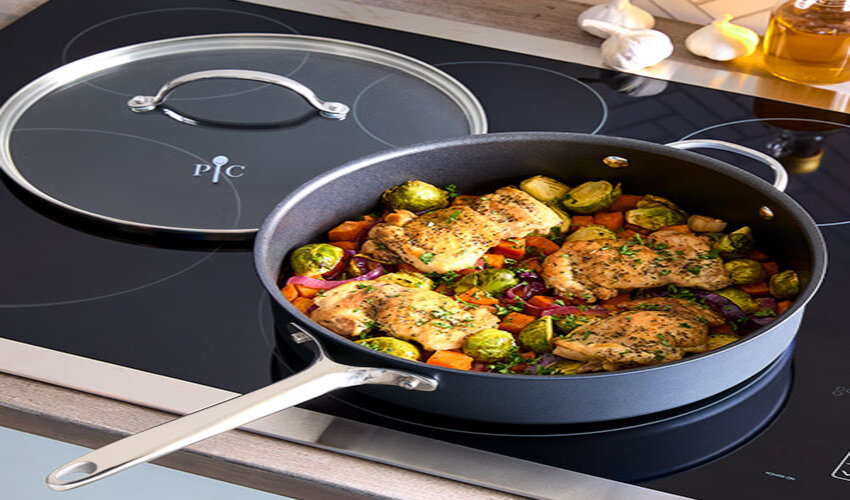
The saute pan is a versatile and indispensable tool in any kitchen, allowing you to master various cooking techniques with ease. Whether you’re sauteing vegetables, stir-frying meats, or browning ingredients to perfection, choosing the right, saute pan is essential. The pan’s size, capacity, construction, and stovetop compatibility are a few considerations that can greatly impact your cooking experience, affecting everything from the amount of food you can prepare to the heat distribution throughout the cooking surface. So this article is here to guide you through choosing the perfect stir-fry pan for your specific cooking needs, covering all important considerations; read on!
Assess your cooking style and needs
Before diving into the world of sauteing pans, take a moment to consider your cooking style and needs. Do you often cook for a large family or entertain guests frequently? Are you more inclined towards quick stir-fries or slow-cooked braises? Understanding your preferences will help you determine the right capacity for your saute pan.
Evaluate the pan diameter
The diameter of the stir-fry pan is crucial as it determines the cooking surface area. A larger diameter provides a larger cooking surface, allowing you to saute more ingredients simultaneously. However, keep in mind that a pan that’s too large may not distribute heat evenly. A good range is between 10 and 12 inches, suitable for most home cooks.
Consider pan height and capacity
The height of the saute pan, along with its capacity, determines the volume of food it can hold. A deeper pan with a higher capacity is recommended if you often cook larger portions or need to accommodate multiple ingredients. On the other hand, if you primarily cook for one or two people, a shallower pan may suffice. Aim for a capacity of around 3 to 4 quarts for versatile cooking options.
Look for a well-constructed pan
Quality construction is key when selecting a sauteing pan that will last. Opt for pans made of stainless steel, copper, or aluminium materials with a thick, multi-layered base for even heat distribution. A sturdy, securely riveted or welded handle is also important for safe and comfortable handling.
Consider the weight and stovetop compatibility
The weight of the stir-fry pan can impact your cooking experience. A heavier pan will provide better heat retention and distribution, which is beneficial for achieving even browning and searing. If you prefer a lighter pan, opt for materials like aluminium or stainless steel with an aluminium core. Besides this, don’t forget to ensure that the stir-fry pan you choose is compatible with your stovetop. Most pans are suitable for gas, electric, and induction stoves, but it’s important to double-check the manufacturer’s specifications to ensure compatibility.
Nonstick or traditional?
Decide whether you want a nonstick frying pan or a traditional one. Nonstick pans are convenient for low-fat cooking and easy cleanup but may not be suitable for high-heat cooking or browning. Traditional pans, especially stainless steel or copper, offer excellent heat conductivity and durability but require proper seasoning or oiling to prevent sticking.
Budget considerations
Set a budget for your frying pan purchase. The price range for saute pans can vary greatly depending on the material, brand, and construction quality. While it’s tempting to go for the cheapest option, investing in a high-quality pan will pay off well in the long run as it will be more durable and provide better cooking performance.
In conclusion, choosing the right capacity saute pan involves assessing your cooking style, pan diameter and height, considering construction materials and weight, deciding between nonstick and traditional options, ensuring stovetop compatibility, and budgeting accordingly. Considering the above-mentioned factors, you can select a stir-fry pan that perfectly suits your cooking needs and enhances your culinary adventures in the kitchen. Happy sauteing!

Aimee Garcia is a Marketing Consultant and Technical Writer at DailyTechTime. She has 5+ years of experience in Digital Marketing. She has worked with different IT companies.

